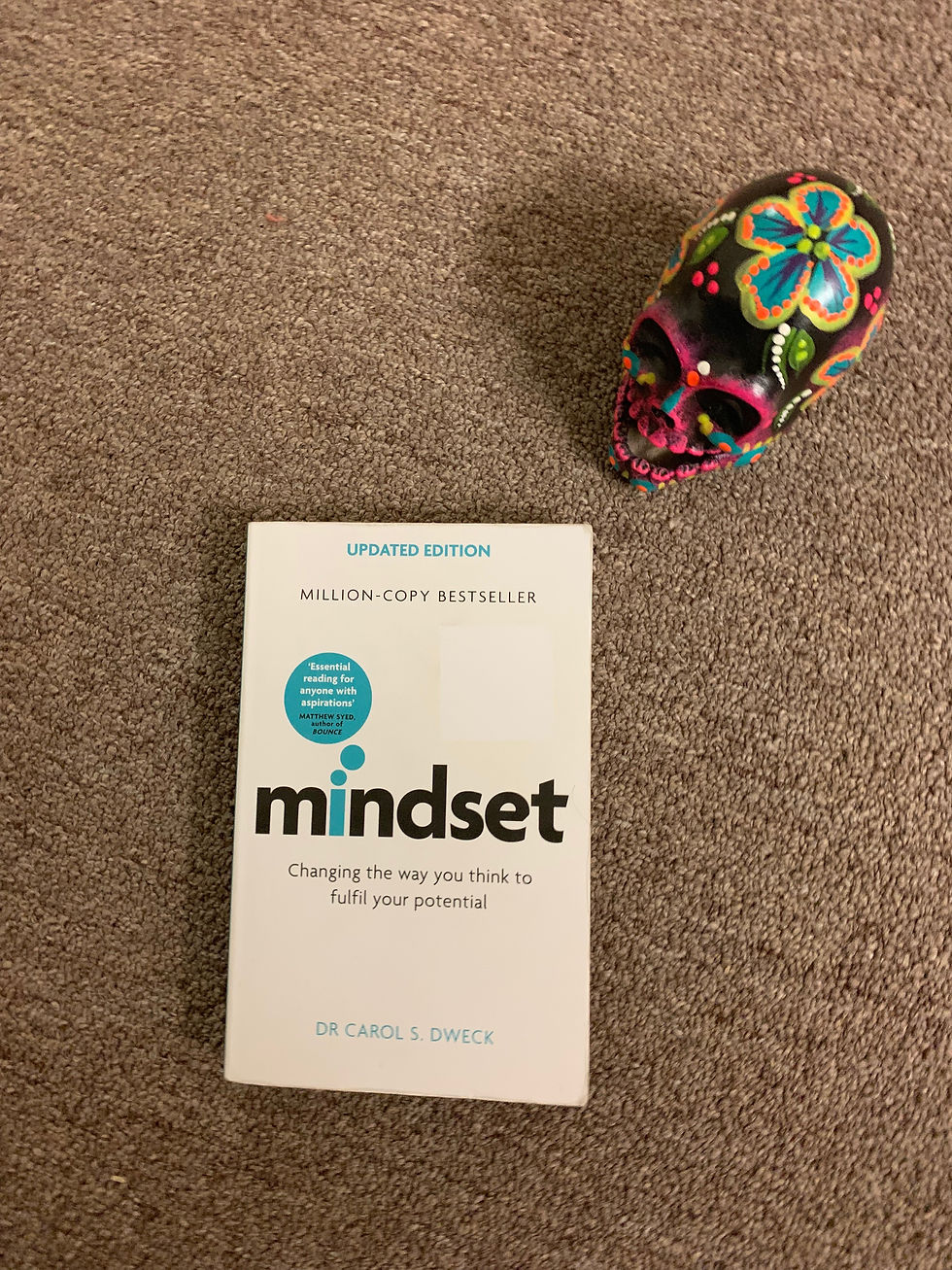Mindset: A Book About Growth
- earth_to_gillian

- Nov 24, 2019
- 4 min read
Updated: Apr 18, 2021

A few months ago, when I was feeling really down in the dumps and was insecure about myself, I went to the annual Book Fair in Hong Kong. I thought of buying some books since reading usually helped me feel better by being more imaginative. That was when I came across the book, Mindset by Dr. Carol S. Dweck. I was never one to read self-help books but I thought that I should give it a try. And this was probably one of the best reading decisions I have ever made. It was the book that inspired me to get into reading more books on personal development, and to challenge how I perceived myself.
In this book, it discusses about people's two typical mindsets: the fixed mindset and the growth mindset. The fixed mindset means that you think that you are unable to improve on certain skills. You believe that some of these skills are innate and you have to be naturally good at them. However, the growth mindset means that you believe that you could improve on your skills by trying different strategies. Which of these did you think the book advocated? Obviously, it was the latter.
With the growth mindset, you are more motivated to improve on your abilities, even if you are already perceived as good at them by your peers. You are more open to criticism and more flexible to change. In fact, you are motivated through criticism because you believe there is always room for improvement.
Most people have a combination of the fixed and growth mindset. For example, they can believe that there is always something to improve on in sports, but they may not believe that for intelligence. Because of this, these people would typically perform better in sports than they do in academics. The same goes vice versa.
After reading this book, I reflected on myself to find which aspects I apply the growth mindset to, and where I apply the fixed. To me, I believe that the growth mindset is something that I apply to in a lot of aspects in my life. I enjoy pushing myself to improve academically, and try challenges to step out of my comfort zone and become more confident.
However, there is one big problem that I have identified where I apply the fixed mindset: overthinking, especially in social situations.
Ever since I was in secondary school, overthinking has been a huge problem of mine. All of my close friends and family know this. But I never knew why I did so and what was its root cause. But after reading this book, I have a better understanding on what I usually overthink about and why.
I realized that I especially do this during social situations, when I think I have done or said the wrong thing. It is also at its worst and I have only become friends with someone recently. With my best friend, it took around two years until I overthought much less around her.
Depending on the social situation, I could become really overwhelmed and a million scenarios will run through my head. This can sometimes cause me to be highly anxious and even lead to panic attacks. A lot of people are surprised by this because I tend to hide it very well and seem to be a very sociable and extroverted person. But even though I am very sociable and extroverted, I still have these anxious tendencies from time to time.
This is where I have the fixed mindset, because I kept on believing that this is something that I am unable to change. And because of that, I began to have strong, negative feelings about myself regarding the perceptions people have of me. I would overthink that my friends, even those I'm close with, dislike me and is only my friend out of obligation. This was at its peak during freshman year, and ultimately, I became withdrawn from a lot of my peers and got irritable during social interactions.
Although this has gradually improved throughout the years, I have only begun seriously thinking of how to improve this after reading Dweck's book. She provided some good tips, even though some may be a bit strange.
For example, one of her advice was to personify your insecurities and give it a name. For example, you could call your insecurities on failing on a certain subject, Bob. So whenever you start to think badly about yourself and fall into the trap of a fixed mindset, you can say to yourself that "Oh, it's Bob that's making me think like this. Bob is the one making me feel like a failure, not me." That way, you're externalizing your thoughts and insecurities, rather than internalizing it. It also allows you to make your insecurities more concrete so it is easier for you to pinpoint and identify.
I've been trying to practice other advice from her book, but I think that one was what has been the most effective so far. It might be a bit odd, but I think it doesn't hurt to try.
I've been a lot happier after practicing this technique. Of course, I still have days where I would overthink and feel insecure about myself, but who doesn't? Everyone has those days, but not everyone has found a solution that can make those days feel a bit better. This might not work for everyone, as coping mechanisms are unique to every person. But what the book has taught me is that you have the choice to actively find a way to push yourself to grow and improve. And that feeling of growth and development does feel rewarding and allows you to appreciate yourself a bit more.
.png)



Comments